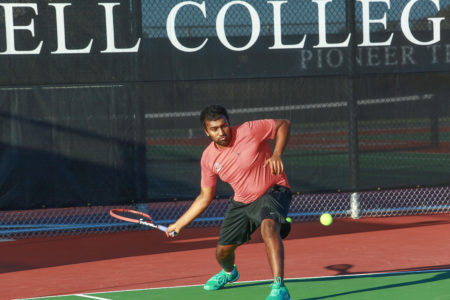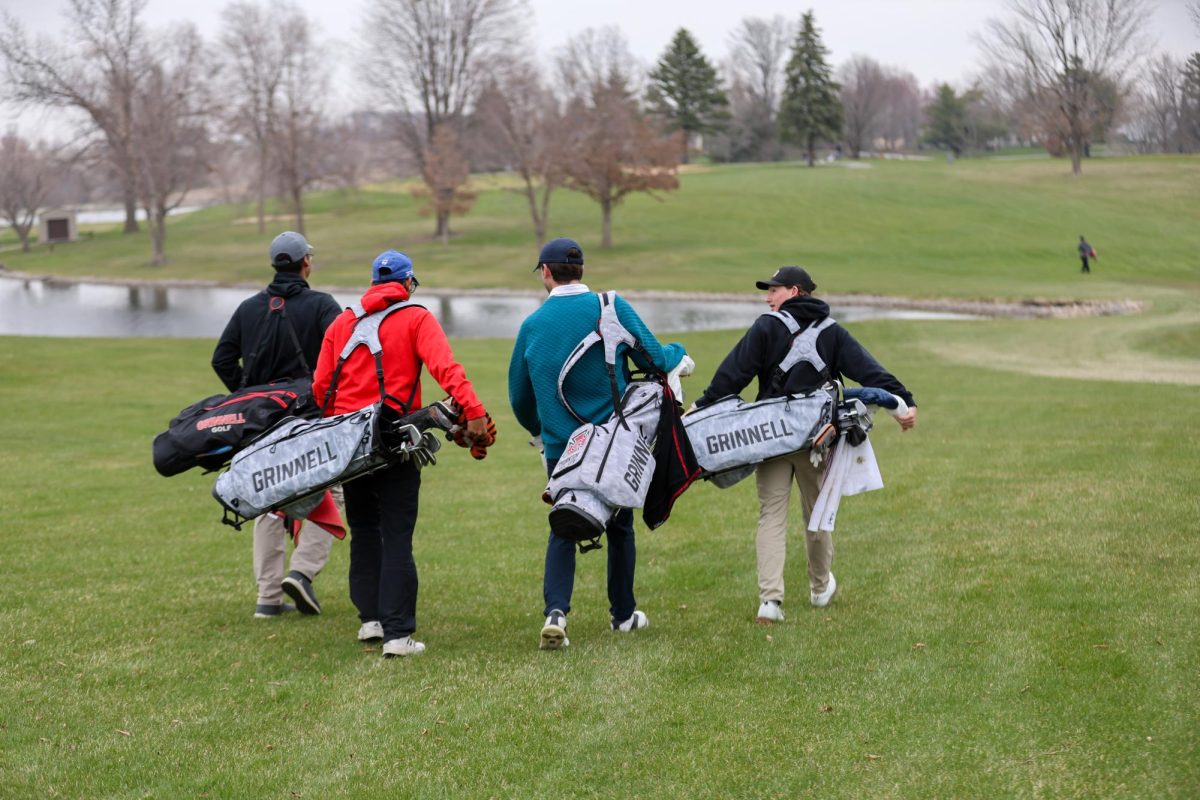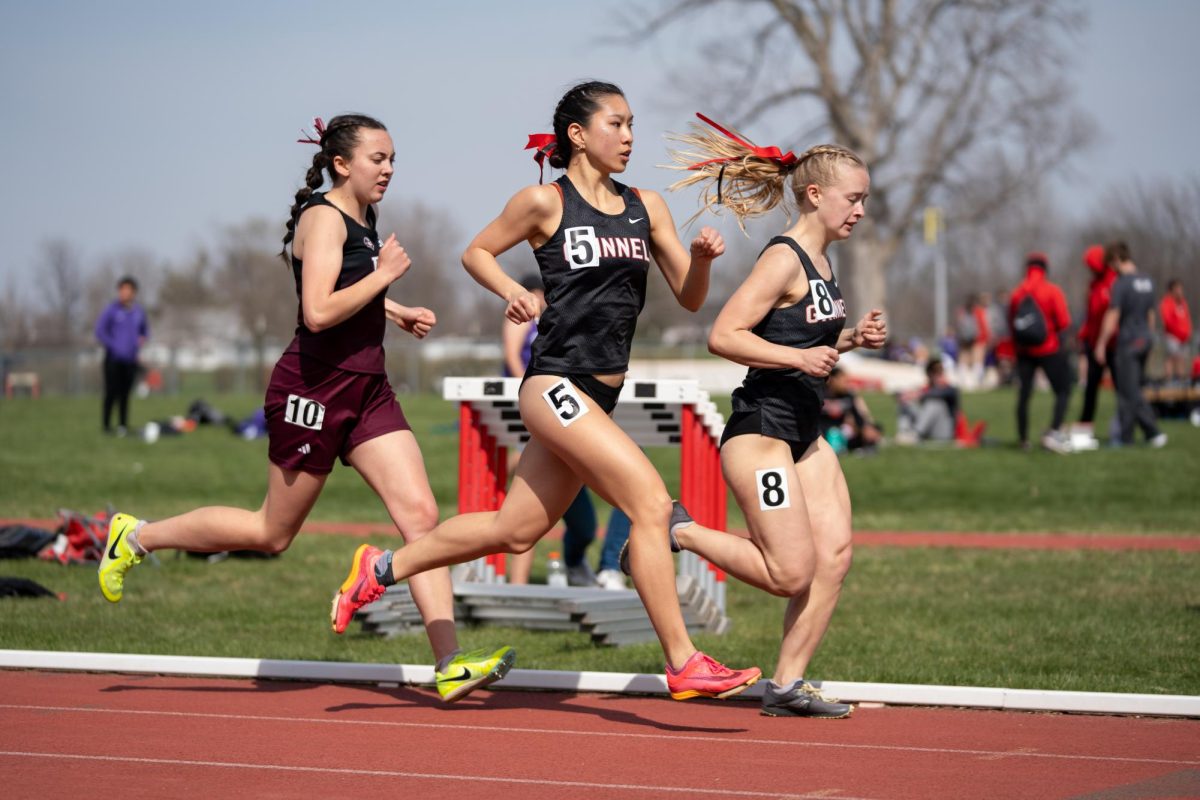
By Ben Mikek
mikekben@grinnell.edu
The vast majority of Grinnell College students have many scheduling demands on their plates, from attending class and tackling problem sets to work-study shifts and social obligations. But for the one-third of Grinnell College students who participate in one or more sports, balancing their schedule is a particular challenge.
“In terms of balancing it all, yeah, I struggle a lot,” said Raghu Inturi ’20 in an interview with the Scarlet & Black. “I’ve developed strategies for dealing with it, and my time management skills have gotten a lot better.”
Inturi spends about 14 hours each week practicing and competing with the men’s tennis team and another eight hours working at the Kistle Science Library.
“It’s not as difficult as one would think it is, but it’s definitely difficult managing shifts,” Inturi said. “Because of [Tennis] practice, I have to sign up for late night shifts, and I would definitely prefer not to do that.”
Abigail Thomson ’19 also works hard to balance her participation in Softball with campus employment at the Fitness Center and at the Sexual Health Information Center.
“For SHIC it’s definitely harder [than for positions in the Bear]. In season, so the spring semester, … I can’t change my softball schedule, so unfortunately, I definitely have to put some pressure on them … I can’t go to all the weekly meetings, and occasionally I’ll have to drop a shift because I have a game or something, but I try to work it out so that … like, I’ll send them ahead of time, these are the days I’m going to miss … so I’ll try to make it work.”
Despite some initial challenges, though, it seems that students who simultaneously work and participate in athletics enjoy some benefits as well. A 2016 study by Kurt Beron and Alex Piquero of the University of Texas at Dallas, for instance, found that student athletes who had jobs on or off campus had higher GPAs than athletes who did not work. It is not clear whether or in which direction this relationship is causal, but both Inturi and Thomson said they had benefited from the experience of working and playing a sport.
“All the positions I work at, I can do a lot of academic work while I’m there, so that’s really not a problem at all,” Thomson said. “Honestly, it’s definitely a lot of time, but for me, I prefer being in season to not, because when I’m really busy like that, I have to be very organized and I have to constantly be working, and for me that kind of keeps me more motivated.”
“We’re in a [Division] III college where academics are above sports, and we come here for academics,” Inturi said.
He also noted an additional benefit of a busy schedule: “You have to question whether you really love all of the things that you’re into, if you really want to continue doing it, which I think is one of the prime benefits of doing tennis and work and extracurriculars and academics all on top of each other. You get to test the waters a bit.”
Some of those time management skills might come in handy in the future; a Purdue University and Gallup Polling study from 2016 found that former student-athletes were about two percentage points more likely to be employed than their classmates, and four percentage points more engaged in their workplace.
Nevertheless, some challenges to working and playing a sport remain. Inturi said that the time commitments of a campus job might set him apart from other members of the tennis team.
“On the team, there’s not too many people with jobs too, so it’s kind of hard to relate to other people in that sense,” he said. “Within the tennis team, it’s not necessarily division, but I guess there kind of is, because whenever I say, oh, I can’t go out tonight or I can’t hang out because I work, no one else on the team has work and can relate in that sense.”






















































